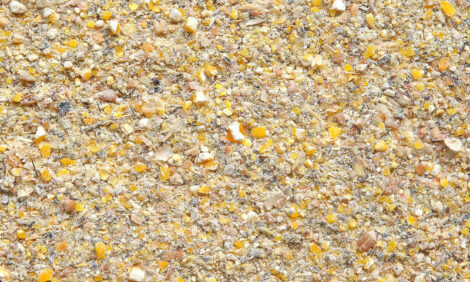



New Peptide May Lead to Control of H9N2 Flu Virus
MALAYSIA - Rajik and colleagues have successfully identified and characterised a novel anti-viral peptide against the H9N2 sub-type of the avian influenza virus. The paper is published in Virology Journal.Medical experts in Asia have been warning about the potential of the H5 and H9 subtypes of the influenza virus to cause the next global flu pandemic in the human population.
Now a group led by first author, M. Rajik of the University Putra Malaysia and co-authors there and at Monash University in Kuala Lumpur have uncovered a new peptide that may lead to control the H9N2 virus.
Avian influenza viruses (AIV) cause high morbidity and mortality among the poultry worldwide, they write. Their highly mutative nature often results in the emergence of drug resistant strains, which have the potential of causing a pandemic. The virus has two immunologically important glycoproteins, haemagglutinin (HA), neuraminidase (NA), and one ion channel protein M2 which are the most important targets for drug discovery, on its surface. In order to identify a peptide-based virus inhibitor against any of these surface proteins, a disulphide constrained heptapeptide phage display library was biopanned against purified AIV sub-type H9N2 virus particles.
Results
After four rounds of panning, four different fusion phages were identified. Among the four, the phage displaying the peptide NDFRSKT possessed good anti-viral properties in vitro and in ovo. Further, this peptide inhibited the haemagglutination activity of the viruses but showed very little and no effect on neuraminidase and hemolytic activities respectively. The phage-antibody competition assay proved that the peptide competed with anti-influenza H9N2 antibodies for the binding sites. Based on yeast two-hybrid assay, we observed that the peptide inhibited the viral replication by interacting with the HA protein and this observation was further confirmed by co-immunoprecipitation.
Conclusion
Rajik et al. say their findings show that they have successfully identified a novel anti-viral peptide against avian influenza virus H9N2, which acts by binding with the haemagglutination protein of the virus.
The broad spectrum activity of the peptide molecule against various sub-types of the avian and human influenza viruses and its comparative efficiency against currently available anti-influenza drugs are yet to be explored.
Reference
Rajik M., F. Jahanshiri, A.R. Omar, A. Ideris, S.S. Hassan and K. Yusoff. 2009. Identification and characterisation of a novel anti-viral peptide against avian influenza virus H9N2. Virology Journal, 6:74. doi:10.1186/1743-422X-6-74Further Reading
| - | You can visit the Avian Flu page by clicking here. |








